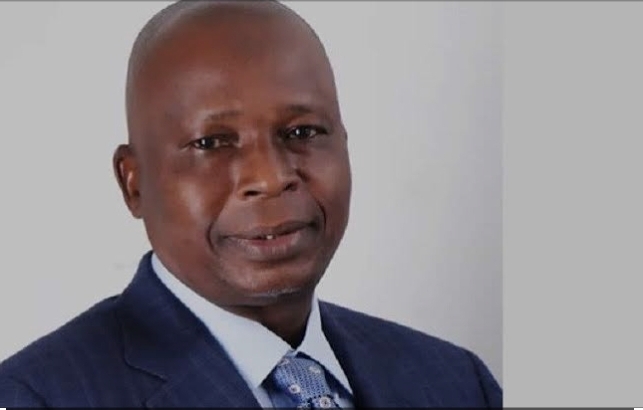
In a move to recover stolen funds stashed in foreign countries, the Federal Government on Tuesday said it was considering the establishment of an International Anti-Corruption Court (IACC).
The government said the IACC will be a paradigm shift in its approach to combating corruption at the global level.
Attorney-General of the Federation and Minister of Justice, Lateef Fagbemi (SAN), stated this in his speech delivered in Abuja during the 33rd Anti-Corruption Situation Room organised by Human and Environmental Development Agenda also known as HEDA Resource Centre, in collaboration with Integrity Initiatives International.
Fagbemi, represented by a Deputy Director (Public Prosecution), Yusuf Abdullahi Abdulkadir, said the corrosive impact of corruption on Nigeria’s development, stability, and prosperity cannot be overstated.
He said: “Nigeria, as a country that has been deeply affected by corruption, could benefit significantly from the establishment of an IACC. Such a court could provide a platform to address cases that involve individuals and assets located abroad, often tied to grand corruption schemes that have a devastating impact on Nigeria’s development efforts.
“It could serve as an additional tool to complement and strengthen the nation’s domestic anti-corruption efforts. The corrosive impact of corruption on Nigeria’s development, stability, and prosperity cannot be overstated.”
While describing corruption, in all its ramifications as a great threat to the stability, progress, and development of nations around the world, the government said graft is a cancer that knows no boundaries, undermines trust, weakens institutions, hampers economic growth and perpetuates social injustice.
The minister said that the IACC would enable the Nigerian government to tackle high-profile cases, powerful individuals and recover stolen assets and property abroad.
At the event, the chairman of HEDA, Olanrewaju Suraj, said corruption is a cankerworm that should be fought tona standstill in Nigeria.
He said, “I’m really worried, and everybody should be worried that what we have in Nigeria now is what is considered in the outside world as more or less a happy ending because many corrupt people are getting elevated to higher places.
“So you can see ministers who are accused of corruption being returned to office. Some of them are becoming ministers, some governors who are still standing trial and ministers are now heads of agencies, and quite a number of them are currently at the federal and state levels.
“So everybody should actually be worried that the proceeds of corruption are actually used to either perpetuate themselves in office or to even get a better juicy appointment.”
Fagbemi said, “To effectively combat corruption on a global scale, we have witnessed the emergence and evolution of various international anti-corruption mechanisms and frameworks. These mechanisms serve as crucial tools in our collective effort to eradicate corruption, and they include conventions such as the United Nations Convention against Corruption and regional initiatives like the African Union Convention on Preventing and Combating Corruption.
“While these mechanisms have undeniably made significant strides in the battle against corruption, the growing advocacy for the establishment of an International Anti-Corruption Court demands our serious consideration. The idea of an IACC represents a paradigm shift in our approach to combating corruption at the international level.
“An IACC would provide a specialized forum for addressing high-level corruption cases that often cross national borders and involve powerful individuals and entities. It would aim to ensure that those responsible for corrupt acts, regardless of their position or nationality, are held accountable for their actions. This would send a powerful message that corruption will not be tolerated anywhere in the world.
“Corruption, in all its forms, poses a grave threat to the stability, progress, and development of nations around the world. It undermines trust in governments, weakens institutions, hampers economic growth, and perpetuates social injustice. It is a cancer that knows no boundaries, affecting both developed and developing countries alike.”
The AGF who acknowledged that Nigeria, like many other nations, is grappling with the debilitating effects of corruption for decades, said it is a challenge that has permeated various facets of Nigerian society, from the public sector to the private sector, and from local communities to the highest echelons of government.
The Director-General of Nigerian Institute for Advanced Legal Studies, Prof. Tawfiq Ladan, represented by a former teacher of Public Law at the University of Jos, Prof. Emily Alemika, said the conference was important as experts gather to explore, interrogate and share insights on international anti-corruption mechanisms and framework.
[ad unit=2]






